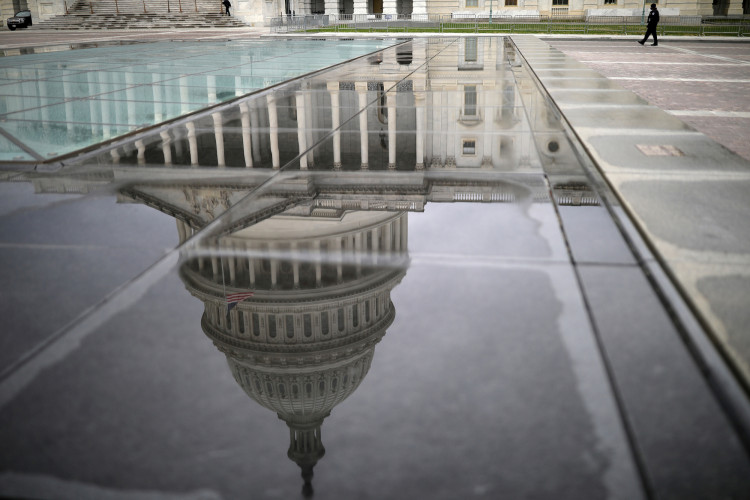The House of Representatives passed a modified version of the contentious Foreign Intelligence Surveillance Act (FISA) reauthorization bill on Friday, just two days after an earlier version failed to advance amid a public rebuke to GOP leadership. The bill, which extends the nation's warrantless surveillance powers under Section 702 of FISA for another two years, cleared the chamber in a bipartisan 273-147 vote.
The passage of the legislation marks a significant win for House Speaker Mike Johnson, who had struggled for months to facilitate compromise among warring factions on the controversial topic. The Louisiana Republican faced direct challenges to his leadership, with Rep. Marjorie Taylor Greene (R-Ga.) filing a resolution last month that could force a vote to remove him from the speakership.
The most dramatic moment of Friday's FISA vote centered around a controversial bipartisan amendment, co-sponsored by Rep. Andy Biggs (R-Ariz.), which would have required the FBI to obtain a search warrant before combing through collected foreign intelligence data for references to U.S. citizens. The amendment vote ended in a rarely seen 212-212 tie, resulting in its failure.
In the immediate lead-up to the vote, senior national security officials, including Attorney General Merrick Garland, personally called members of Congress, urging them to oppose the amendment. The Biden administration also distributed a memo characterizing the Biggs amendment as a "threat to national security" and a "reckless policy choice."
Rep. Jake Ellzey (R-Texas), who presided over the chamber, gaveled out the vote amid objections from Rep. Anna Paulina Luna (R-Fla.). Rep. Laurel Lee (R-Fla.), the sponsor of the legislation, then offered a motion to reconsider the vote, which was subsequently tabled by Rep. Mike Turner (R-Ohio), chair of the House Intelligence Committee.
The reauthorization of Section 702, which allows for the warrantless surveillance of noncitizens located abroad, has united some Republicans and Democrats who argue that the government should need a warrant to review any information collected on Americans as a result of foreign surveillance. House Judiciary Committee Chair Jim Jordan (R-Ohio) stated during the debate, "The underlying bill has got some changes and reforms that are positive, that are good - but short of having this warrant amendment added to the legislation, we shouldn't pass it. This amendment is critical."
However, others aligned with the intelligence community and the White House argued that the amendment would gut the bill, blinding law enforcement to information that requires immediate, real-time review. The White House strongly opposed the amendment, stating that it would "rebuild a wall around, and thus block our access to, already lawfully collected information in the possession of the U.S. Government."
The bill includes numerous reforms to FISA 702, such as requiring agents to get approval before querying the 702 database for information that may concern Americans and mandating a Justice Department audit of all U.S. person queries. It also includes provisions that would notify some members of Congress about searches involving lawmakers and require congressional blessing for "defensive" searches related to lawmakers, with exceptions made by the director or deputy director of the FBI.
Despite the passage of the FISA reauthorization, Speaker Johnson faces a rocky road ahead as he prepares to navigate a contentious debate over sending additional aid to Ukraine, which has bedeviled his speakership since he won the gavel in October.






